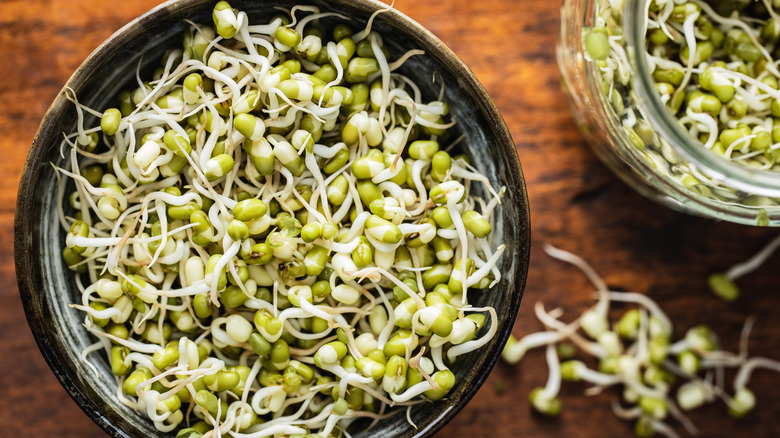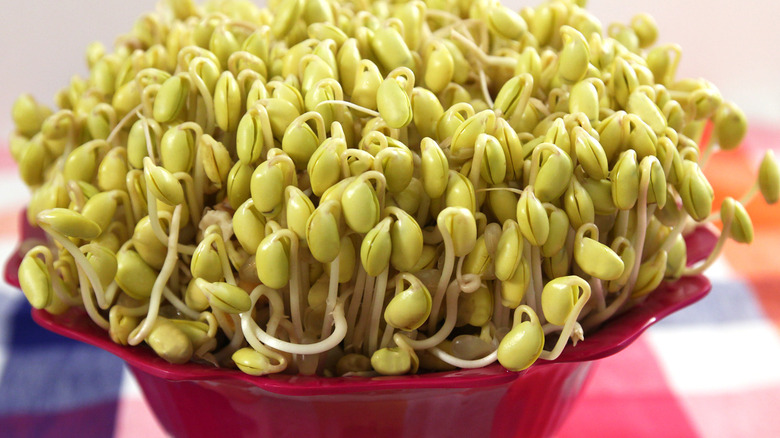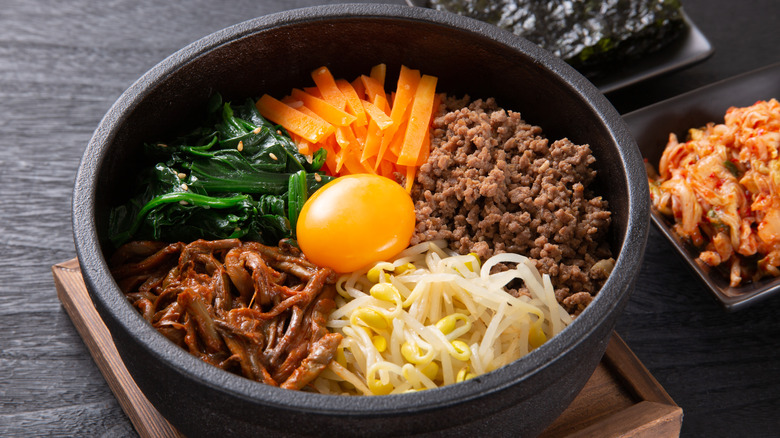Why Eating Bean Sprouts Can Be So Risky
A powerhouse in flavor and nutrition, beans sprouts are small little vegetables that garner big amounts of love. In fact, during 2020 lockdowns, many people started growing sprouts at home once store shelves went bare (via Eater). And what's not to love? Raw bean sprouts add a crunchy burst of freshness that bode well tossed raw into salads, tucked into sandwiches, or lightly cooked in pad thai. The germinated seeds can stem from not just beans, but a number of legumes, grains, and other veggies; and all varietals are loaded with helpful nutrients. As registered dietitian Mira Ilic explained to the Cleveland Clinic, sprouts are a great source of vitamins, fiber, minerals, and antioxidants.
While the wondrous benefits of sprouts grow in ample amounts, their consumption does come with a few unfortunate caveats having to do with food safety. Turns out, munching on fully raw sprouts has its risks.
The effects of contaminated sprouts
Recent research has shown that eating sprouts can potentially cause food poisoning when they're consumed raw or even lightly cooked. The CDC has even gone as far as listing bean sprouts on a roster of top foods associated with triggering food poisoning. "The warm, humid conditions needed to grow sprouts are ideal for germs to grow ... and may lead to food poisoning from Salmonella, E. coli, or Listeria," the organization explains.
Along with the humid temperatures come the contaminants that live inside the seeds of the actual sprouts themselves. Travers Anderson, R&D Group Manager of Clorox, explains that these seeds are typically "brought in from the fields," and in the event they arrive pre-contaminated, the trickle-down effect goes straight towards the bean sprouts (via Real Simple). What's worse is the physical toll eating contaminated raw bean sprouts might have on us humans. Diarrhea, fever, and severe abdominal cramps are common symptoms that can occur between 12 to 72 hours upon infection.
How to safely eat bean sprouts
This all sounds scary and downright confusing, but before you turn a blind eye to that pack of raw sprouts in the produce section, just know that there are easy ways to enjoy eating them without getting violently ill. The first rule is buying only the freshest sprouts. The Academy of Nutrition and Dietetics suggests avoiding sprouts that have "a musty smell or slimy appearance." Once you bring your sprouts home, make sure to give them a thorough cleaning under running water before you use them. But if that doesn't feel like enough protection, you can go one step further and rinse your sprouts and other produce with a DIY diluted bleach solution, according to Real Simple. You should also always store your raw bean sprouts in a clean, properly-chilled refrigerator.
And the final safeguard for assuring the sprouts are risk-free is to cook them! This will combat contaminants and yield some crunchy (fully-cooked) sprouts that taste phenomenal in a bowl of bibimbap. That's a pretty nice tradeoff!


